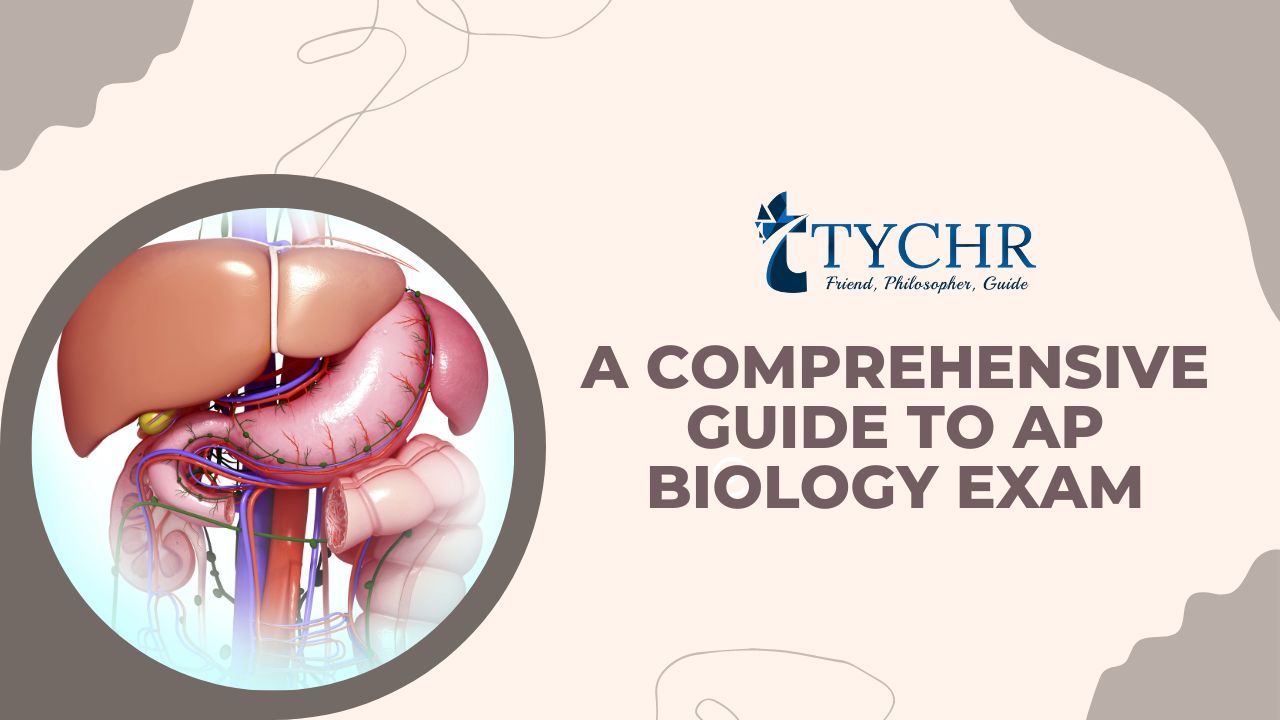Table of Contents
The AP Biology Examination is a standardized test administered by the College Board that assesses students’ understanding of the principles of biology and their ability to apply these principles to real-world situations. This exam is widely recognized by colleges and universities in the United States and is an important part of the college application process for many students. However, preparing for the AP Biology Examination can be a daunting task, as the exam covers a wide range of topics and requires a deep understanding of biological concepts. That’s why we’ve put together this comprehensive guide to help you prepare for the AP Biology Examination.
In this guide, we’ll provide you with an overview of the exam format and content, as well as tips and strategies for studying effectively and performing well on exam day. We’ll also share resources that you can use to reinforce your knowledge and practice your skills, including sample questions and practice tests. Whether you’re just starting to prepare for the AP Biology Examination or you’re looking for additional support to help you achieve your best score, this guide will provide you with everything you need to know to succeed. So let’s get started!
The Exam:
The AP Biology exam overall is 3 hours long. It’s split into two sections – Multiple Choice, with a duration of 1 hour 30 minutes and Free Response, with a duration of 1 hour 30 minutes. There will be a short break between the two sections, and you will be allowed a calculator throughout the test (standard four-function, scientific, or graphing calculators only).
| Section | Time Duration | About the questions |
| Multiple Choice (50%) | 1 hour 30 minutes | This section has 60 questions both individual and in sets. The set of questions can pertain to the same graphic or diagram or data presentation.
Single-select questions are each followed by five possible responses, only one of which is correct. |
| Free Response (50%) | 1 hour 30 minutes | This section has 6 free response questions. Of the 7, 4 are short answer questions which are worth 4 points each while the remaining 2 are long answer questions that are worth 10 points each. The type of questions vary from analyzing data presented and deriving a result, constructing graphs, procedural writing for experiments and more.
The free-response section is graded by high school and college teachers in contrast to the multiple-choice section, which is graded by a computer. If you don’t correctly answer every part of the question, you might still receive some points for the steps because they have rules for partial credit. |
The multiple-choice section is scored using a computer, and the free-response section is scored by trained examiners. The examiners use scoring guidelines provided by the College Board to score the free-response questions. The guidelines provide detailed descriptions of the content, skills, and analytical abilities that are required for each question.
The free response section of the exam is where you want to be extremely cautious. Ensure that you prepare beforehand on what you must include in the answers for different types of questions. You also must ensure that you distribute your time evenly as certain questions in the free response section will consume a significant amount of time.
Every topic/unit has its individual weightage. The exam may have more questions from one topic than the other as the distribution is not equal. Below is a look at the nine units structured in a sequence recommended by the College Board, along with the weight each unit is given on the AP Biology exam:
| Unit Name | Percentage weightage in Examination |
| Chemistry of Life | 8% – 11% |
| Cell Structure and Function | 10% – 13% |
| Cellular Energetics | 12% – 16% |
| Cell Communication and Cell Cycle | 10% – 15% |
| Heredity | 8% – 11% |
| Gene Expression and Regulation | 12% – 16% |
| Natural Selection | 13% – 20% |
| Ecology | 10% – 15% |
Although certain topics may carry more weight than others on the AP Biology Examination, it’s important not to overlook any chapters when studying. It’s crucial to review and fully understand all topics in the syllabus, as there is a possibility of encountering challenging questions on minor topics during the exam. Neglecting to review all material thoroughly may result in a lower score, so it’s essential to go through each topic in the syllabus.

Preparation Tips:
Preparing for the AP Biology exam can seem daunting, but with the right strategies, students can succeed. Here are some tips on preparing for the exam:
- Start Early and Don’t Hesitate to Ask for Help: To be well-prepared for exams, it is crucial to begin studying early. Students should create a study schedule and allocate adequate time to cover each topic thoroughly. By starting early, students can also review the material carefully and seek assistance if required. It’s important not to hesitate to ask for help from peers or teachers, as they can help clarify any confusing concepts or problems to the best of their ability, and it can prove beneficial for you.
- Revise right before, Study way before: The AP Biology exam covers a broad spectrum of subjects, including molecular biology, genetics, evolution, ecology, and anatomy. It’s crucial for students to review and comprehend the key theories and concepts related to these topics leading up to the exam. It’s recommended to allocate 5-7 days before the exam to revise the entire syllabus thoroughly. This approach can help make studying easier and ensure that you are well-prepared for the exam.
- Take Practice Tests: Taking practice tests is a highly effective method to get ready for the AP Biology exam. These tests enable students to recognize their strong and weak areas and offer a general idea of what to anticipate on the actual exam. It is recommended to attempt multiple practice tests before the exam and use online question banks to answer questions and compare responses to the answer key. This self-evaluation process can help students understand the level of detail required to obtain the maximum points for each question.
- Making your personalized flashcards: Creating flashcards or small revision notes can be an effective way to study for the AP Biology exam. These study aids allow students to condense the material into bite-sized pieces, making it easier to remember and review the information. By summarizing key concepts and vocabulary on flashcards or revision notes, students can quickly and easily review the material, allowing them to study anytime, anywhere. Additionally, the process of creating these study aids can help reinforce the material in a student’s mind, leading to better retention and recall on exam day.
Let’s also go over some pointers to keep in mind during the examination in order to maximize your score:
- Time Management: Effective time management is essential for success on the AP Biology exam. With a limited amount of time to complete the exam, it’s important for students to allocate their time wisely. They should aim to complete each section of the exam within the designated time frame, allowing sufficient time for review at the end. Students can also practice time management by taking practice tests and timing themselves, identifying areas where they may be spending too much or too little time. Effective time management can help students remain calm and focused during the exam, ensuring they have enough time to answer all the questions to the best of their ability.
- Read the Questions Carefully: When taking the AP Biology exam, it is crucial to read each question carefully and answer with caution. If a question is not clear, read it multiple times and check your answers before submitting. To start, answer the questions that you are confident you can answer correctly, and then move on to the more challenging ones. This approach can help you earn points on questions you know while maximizing your time and ensuring you don’t miss any questions.
- Labeling Graphs: Labeling diagrams and graphs is a crucial aspect of the AP Biology exam. The exam frequently includes questions that require students to analyze and interpret diagrams and graphs, and correctly labeling the various components is essential to answering these questions accurately. When labeling diagrams, students should ensure that all parts are clearly labeled, and the labels are legible. When labeling graphs, students should clearly indicate the axes, including the units of measurement, and label any points or lines as necessary. Accurate labeling of diagrams and graphs can help students earn points even if they do not fully understand the underlying concepts, making it a critical aspect of the exam.
- Writing units and notations: One of the most crucial things to remember in any science exam is to include units for all numerical values and specify the state of all chemicals accurately. While it may seem tedious, omitting units or failing to indicate the state of a chemical can result in point deductions and cause frustration. Therefore, it’s essential to ensure that all values are accompanied by their appropriate units, and all chemicals are correctly labeled with their corresponding state.
- Answer all of the questions: When taking the AP Biology exam, it’s important to attempt every question, but prioritize answering the ones you know well to obtain maximum points. In the multiple-choice section, if you have around 30 seconds left and haven’t answered some questions, it’s better to at least fill in an option. For free-response questions, there may be multiple parts labeled as a, b, c, and d, each requiring a separate answer. It’s essential to attempt all parts of the question, as credit is awarded separately for each part. Even if you’re unsure about an earlier part, correct responses to later parts may be necessary to obtain full credit for an earlier part. In some cases, you may even receive full credit for later parts, even if you didn’t receive any points for an earlier response.
Along with the aforementioned strategies and tips, it’s equally crucial to prioritize self-care throughout the preparation and testing phase. Getting enough sleep, eating nutritious food, and engaging in physical exercise regularly can lower stress and anxiety levels and improve concentration and attentiveness.
Overall, the AP Biology exam is a challenging yet rewarding test that requires thorough preparation and a comprehensive understanding of the subject matter. To excel on this exam, students should start early, use various resources such as textbooks, practice tests, and flashcards, manage their time effectively during the exam, and answer each question with caution, attempting to answer all parts of the question for maximum credit. Remember to practice and review regularly, seeking help when needed, and approaching the exam with confidence and focus. With these tips in mind, you can maximize your chances of success and earn a top score on the AP Biology exam, opening doors to many exciting academic and professional opportunities in the future. Good luck!








